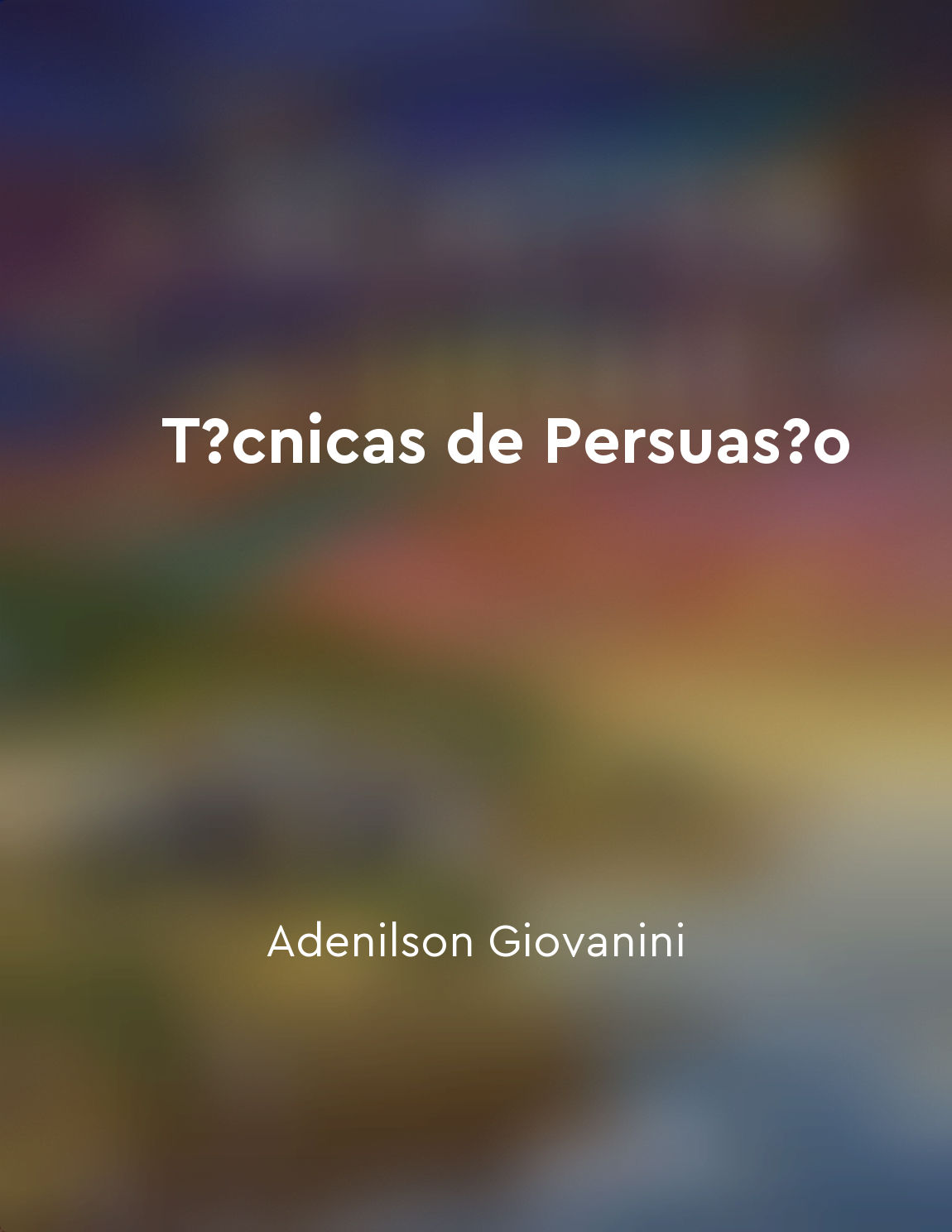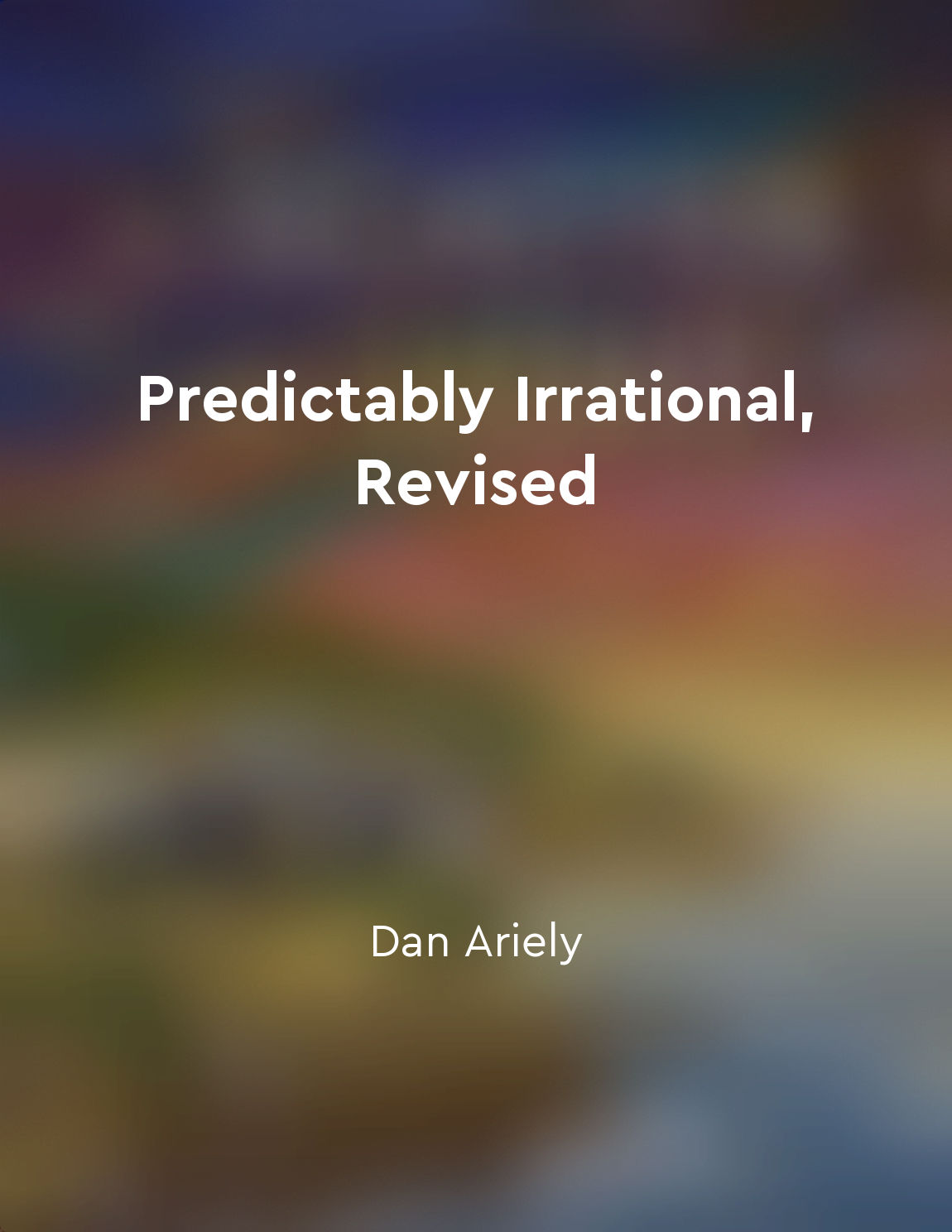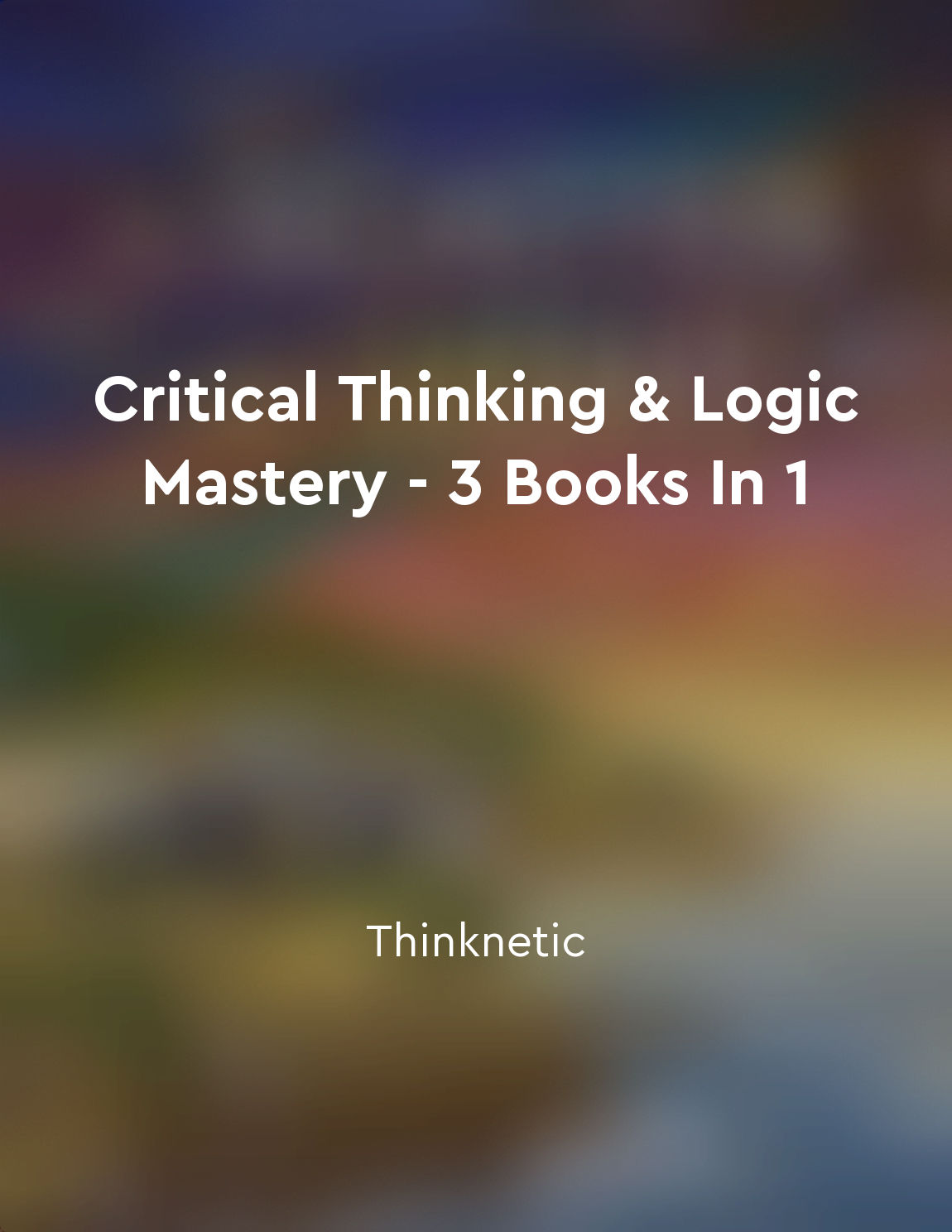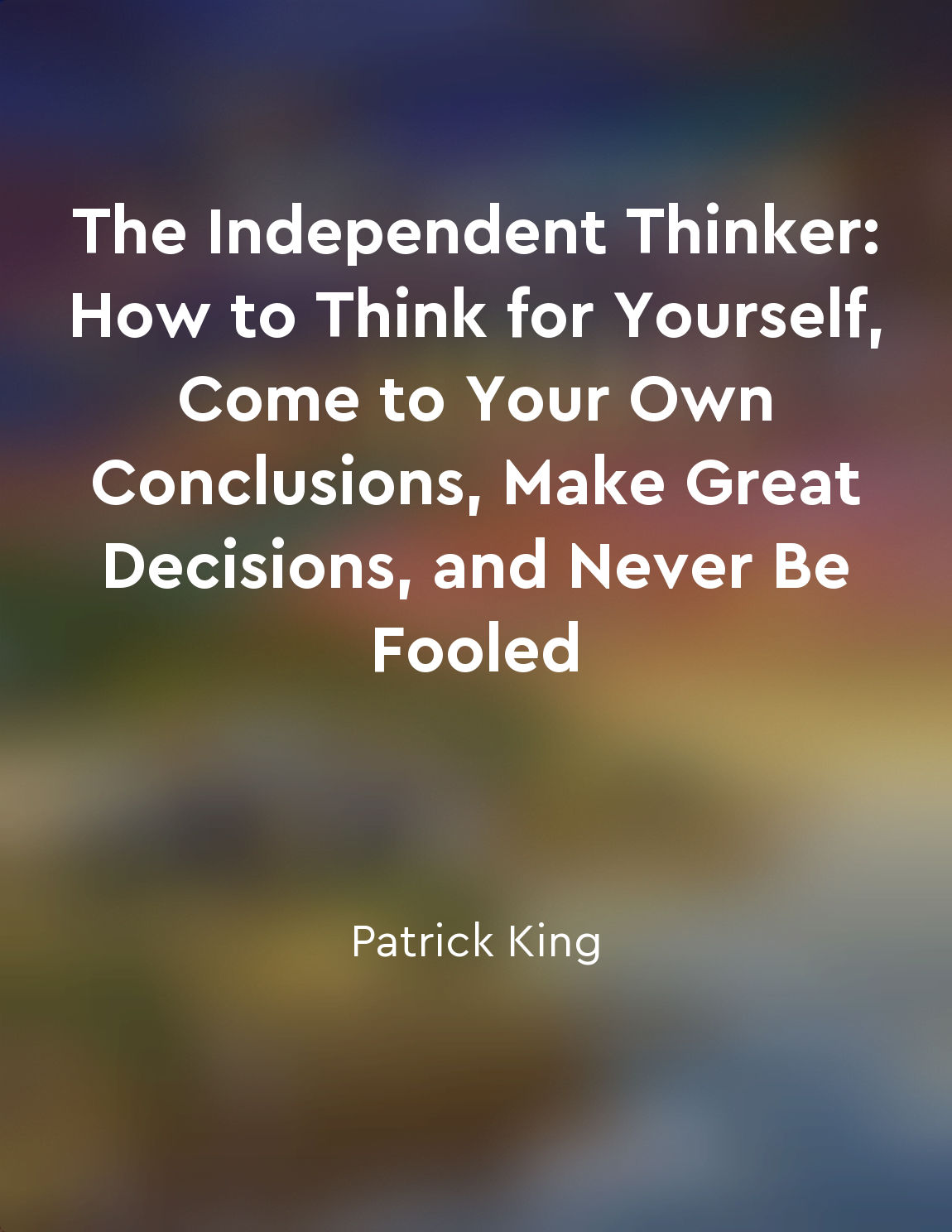Make decisions based on evidence from "summary" of The Independent Thinker: How to Think for Yourself, Come to Your Own Conclusions, Make Great Decisions, and Never Be Fooled by Patrick King
Making decisions based on evidence is not just a good idea - it's the only way to ensure that you are making informed choices. Evidence is the foundation of rational decision-making, providing you with the facts and information you need to weigh your options and come to a logical conclusion. Without evidence, you are simply guessing or relying on intuition, which can lead to faulty judgments and poor outcomes. Evidence can take many forms, from scientific studies and data analysis to firsthand observations and personal experiences. The key is to gather as much relevant evidence as possible and critically evaluate its validity and reliability. This means looking for sources that are credible, unbiased, and backed up by solid research and reasoning. It also means being open-minded and willing to consider all sides of an issue, even if they contradict your preconceived beliefs or opinions. When you make decisions based on evidence, you are less likely to be swayed by emotions, biases, or misinformation. Instead, you can rely on facts and logic to guide your thinking and actions, leading to better outcomes and more successful results. Evidence-based decision-making is not foolproof, of course, but it is a far more reliable and effective approach than relying on gut feelings or hearsay. In today's world, where misinformation and fake news are rampant, it is more important than ever to be a critical thinker and a discerning consumer of information. By making decisions based on evidence, you can protect yourself from manipulation and deception, ensuring that you are acting in your own best interests and those of others. So the next time you are faced with a decision, remember to seek out the evidence, weigh your options carefully, and make a choice that is grounded in reason and reality.Similar Posts

Using persuasive language can be impactful
The power of persuasive language lies in its ability to influence and sway others to a particular point of view or course of ac...

We tend to follow the path of least resistance
When faced with a decision, we often opt for the easiest choice, the path of least resistance. This tendency is deeply ingraine...
Evaluate decisions based on process, not outcome
When we make decisions, we often judge their quality based on the outcome they produce. If things turn out well, we tend to vie...
The welfare state is essential for social stability
The welfare state is essential for social stability because it provides a safety net for individuals in times of need. Without ...
Scarcity can drive demand and increase persuasion
Scarcity can act as a powerful motivator in driving demand and increasing the level of persuasion in a particular situation. Wh...

Identifying cognitive biases can improve decisionmaking
Recognizing cognitive biases is crucial in enhancing our decision-making abilities. These biases are inherent tendencies that c...
Legal reasoning entails balancing competing interests and values
Legal reasoning requires careful consideration of various interests and values that may conflict with one another. When interpr...
Identifying logical fallacies
Identifying logical fallacies is a crucial skill in developing strong critical thinking abilities. A logical fallacy is essenti...
The internet challenges traditional notions of knowledge
The internet has fundamentally altered the way we access information, challenging traditional ideas about knowledge. In the dig...
Causality is inferred from experience
When we look back on the past and reflect on our experiences, we often make connections between events that seem to be causally...

